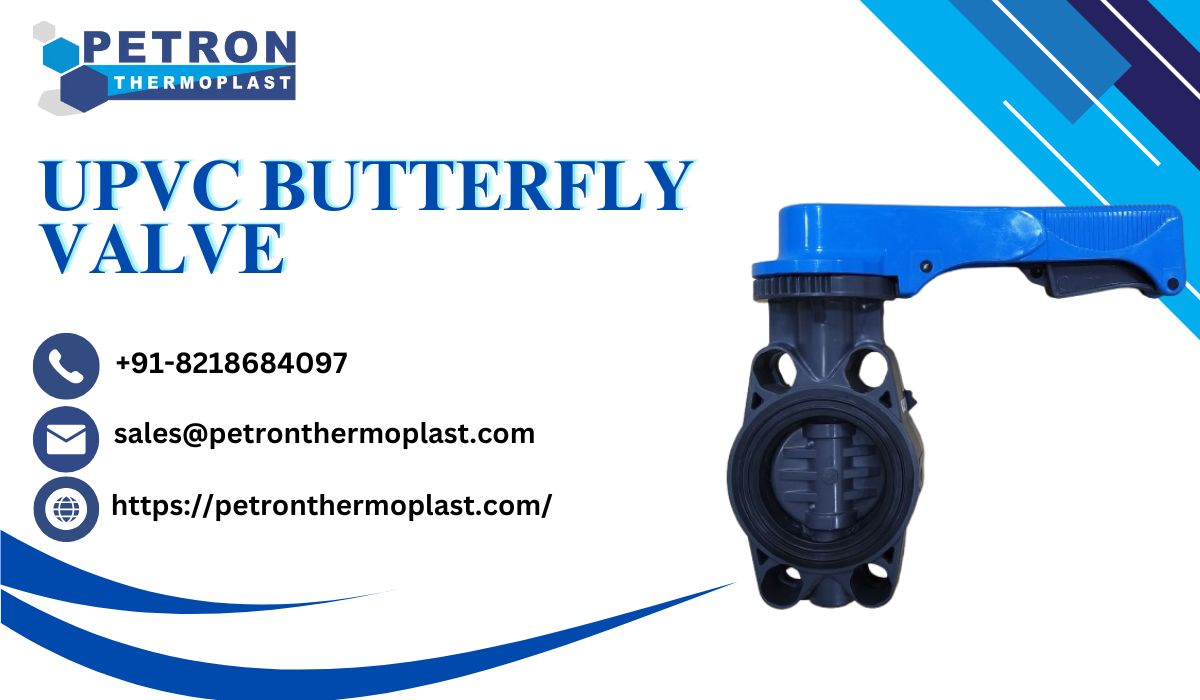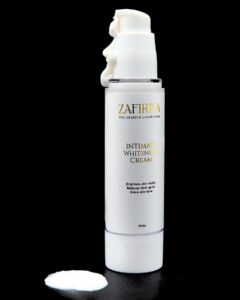UPVC Butterfly Valve – Flow Control for Industrial Applications
When it comes to fluid control in industrial and commercial piping systems, UPVC Butterfly Valves offer one of the most...

When it comes to fluid control in industrial and commercial piping systems, UPVC Butterfly Valves offer one of the most reliable and cost-effective solutions. Designed for efficient shut-off and regulation of fluid flow, these valves are widely used across industries due to their lightweight construction, corrosion resistance, and ease of operation. Whether you’re managing water treatment, chemical processes, or irrigation systems, a UPVC Butterfly Valve delivers dependable performance at a competitive price.
In this blog, we explore the features, benefits, applications, and technical considerations of UPVC Butterfly Valves, helping you make an informed decision for your next project or installation.
What is a UPVC Butterfly Valve?
A UPVC Butterfly Valve is a type of quarter-turn valve used to regulate or isolate the flow of liquids through a pipe. It consists of a circular disc (the “butterfly”) mounted on a rotating shaft. When the handle is turned 90 degrees, the disc moves from a fully open to a fully closed position (or vice versa), controlling the fluid flow.
The body of the valve is made from Polyvinyl Chloride (UPVC), a thermoplastic known for its high strength-to-weight ratio, corrosion resistance, and cost-effectiveness. These properties make UPVC Butterfly Valves suitable for use in both residential and industrial systems.
Key Features of UPVC Butterfly Valves
- Lightweight and Easy to Install
UPVC is significantly lighter than metal, making the valve easier to handle and install — even in large-diameter piping systems. - Corrosion and Chemical Resistance
UPVC provides excellent resistance to acids, alkalis, salts, and a wide range of industrial chemicals. This makes the valves ideal for aggressive media applications. - Quarter-Turn Operation
The simple 90-degree turn from fully open to closed allows for fast operation and automation. Valves can also be fitted with electric or pneumatic actuators. - Durable and Maintenance-Free
With fewer moving parts and non-metallic construction, UPVC Butterfly Valves require minimal maintenance and offer long operational life. - Cost-Efficient Solution
Compared to metal valves like stainless steel or brass, UPVC options are more affordable while still offering reliable performance in non-extreme conditions. - Full-Bore Design
The wide-open passage in open position ensures minimal pressure drop and unrestricted flow in the pipeline.
Common Applications of UPVC Butterfly Valves
UPVC Butterfly Valves are versatile and serve a wide range of industries. Below are some common application areas:
1. Water Treatment Plants
UPVC Butterfly Valves are commonly used in filtration, softening, and distribution systems, handling clean or slightly contaminated water.
2. Chemical Dosing Systems
Due to their chemical compatibility, these valves are used to manage the flow of acids, alkalis, and other chemical agents in process pipelines.
3. Irrigation and Agriculture
UPVC valves are ideal for irrigation networks, where lightweight, corrosion-free solutions are preferred for on-off and flow regulation.
4. HVAC and Cooling Systems
In chilled water and HVAC piping systems, butterfly valves control flow and help in balancing water circuits efficiently.
5. Food and Beverage Processing
Where hygiene is critical and corrosion must be avoided, UPVC butterfly valves offer clean, reliable control for non-toxic fluids.
6. Aquariums and Aquaculture
In saltwater or freshwater tank systems, UPVC valves regulate flow without the risk of rusting or chemical contamination.
Installation and Operation Tips
- Orientation: UPVC Butterfly Valves can be installed in horizontal or vertical pipelines. Ensure the valve disc is centered and aligned properly to prevent seat damage.
- Tightening Sequence: When mounting between flanges, tighten bolts in a cross pattern to avoid stressing the valve body.
- Compatibility: Check for compatibility with your pipeline material (UPVC, HDPE, metal, etc.) and media being conveyed.
- Actuation: For large valves or systems requiring automation, opt for gear-operated, electric, or pneumatic actuation modules.
- Temperature & Pressure Limits: Do not exceed the rated limits for temperature and pressure to avoid deformation or valve failure.
UPVC vs. Metal Butterfly Valves
| Feature | UPVC Butterfly Valve | Metal Butterfly Valve |
| Weight | Lightweight | Heavy |
| Corrosion Resistance | Excellent (especially for chemicals) | Moderate (unless coated or stainless) |
| Cost | Low | High |
| Maintenance | Low | May require frequent servicing |
| Pressure Rating | Up to 10 bar | Up to 25 bar or more |
| Best Use Case | Water, chemicals, light-duty | Steam, oil, high-pressure systems |
Why Choose Petron Thermoplast for UPVC Butterfly Valves?
At Petron Thermoplast, we are committed to offering high-performance thermoplastic valves and flow control solutions. Our UPVC Butterfly Valves are:
- Made from virgin-grade UPVC material
- Available in various sizes, seats, and disc configurations
- Quality-tested for leak-proof performance
- Delivered with short lead times and in bulk quantities
- Backed by expert support and technical assistance
Available Variants
- Wafer Type UPVC Butterfly Valve – Lever Operated
- UPVC Butterfly Valve with Gearbox
- UPVC Butterfly Valve with Electric Actuator
- UPVC Butterfly Valve with Pneumatic Actuator
- Customized Sizes and Pressure Ratings Available
Final Thoughts
The UPVC Butterfly Valve is a dependable, low-maintenance valve designed for a wide range of fluid control applications. From industrial water systems to chemical dosing and irrigation, it provides a simple yet effective means of regulating flow. Thanks to its affordability, corrosion resistance, and ease of use, it has become a preferred valve type across industries.
If you’re looking for a cost-effective, chemical-resistant, and durable flow control valve, the UPVC Butterfly Valve from Petron Thermoplast is the ideal solution.



